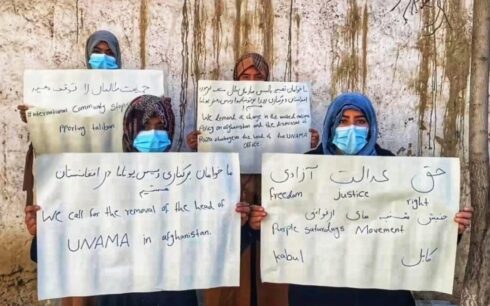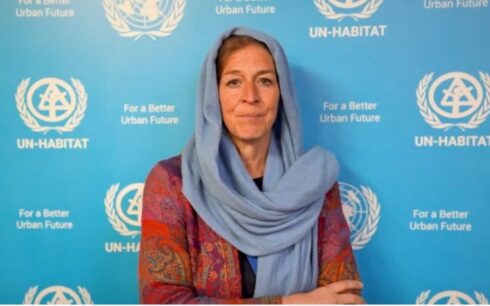One year has passed from the Taliban’s ban on women working in non-governmental organizations (NGOs) but the restrictive measures persist, leaving tens of thousands of women without employment opportunities.
The ban, initially announced on December 24, 2022, alongside other prohibitions, including on women’s education at universities, has endured, with new orders further limiting women’s roles in the workforce. The latest restrictions include prohibiting women from UN offices and the closure of all beauty salons.
Contrary to initial statements indicating the ban was temporary, a year later, the Taliban has not lifted restrictions on women’s employment, resulting in severe consequences, including significant economic challenges for women who were previously employed in various capacities.
Mariam, a former chef at a private organization, used to earn 13,000 Afghanis to provide for her family. Now, she has turned to weaving to support her family as the responsibility falls entirely on her shoulders. Maryam’s husband is sick, and she is the sole breadwinner for her nine-member family.
International organizations, including the United Nations, have raised concerns about the impact of these restrictions, with a review indicating that 86 percent of NGO activities have been halted. The International Labor Organization reported a 25 percent decrease in women’s employment in the last quarter of 2022, a figure likely to have increased due to additional Taliban-imposed restrictions.
A United Nations survey in June 2023 revealed that 85 percent of women noted a decrease in income-generating activities, with 41 percent reporting no income-generating activities at all. Prohibitions on education and work were highlighted as factors contributing to negative coping mechanisms, including child labor and child marriages.
Shukria Barakzai, former ambassador of Afghanistan to Norway, stated, “Unless the Taliban lifts these restrictions, official recognition will not be possible, and additional sanctions will be imposed on them.”
The Taliban’s continued enforcement of work restrictions, including the April ban on women working for UN organizations and at beauty salons, has drawn global condemnation. The international community emphasizes the importance of lifting these restrictions for the normalization of relations with the Taliban. However, the Taliban remains unresponsive to these demands.
Heather Barr of the Women’s Rights Division of Human Rights Watch said, “Even if these policies are reversed, this time lost cannot be regained, and no country can function, prosper, and develop without the involvement of all of its citizens and opportunities for all of its citizens.”
While some women are limitedly involved in specific sectors, the overall impact of the work ban remains a critical concern. The Taliban claims that around 150,000 women are working in the health sector and 200,000 others in the education sector, though instructors dispute these claims, stating they receive meager salaries without active roles.
Reports from United Nations-affiliated organizations emphasize that the restrictions have exacerbated economic and humanitarian crises in Afghanistan, where around 28 million people are in dire need of humanitarian assistance, underscoring the importance of women’s participation in the recovery process.
Despite facing ongoing challenges, women in Afghanistan have demonstrated resilience and continued their fight for fundamental rights, expressing slogans such as “bread, work, freedom” one year since the ban on women’s employment.





